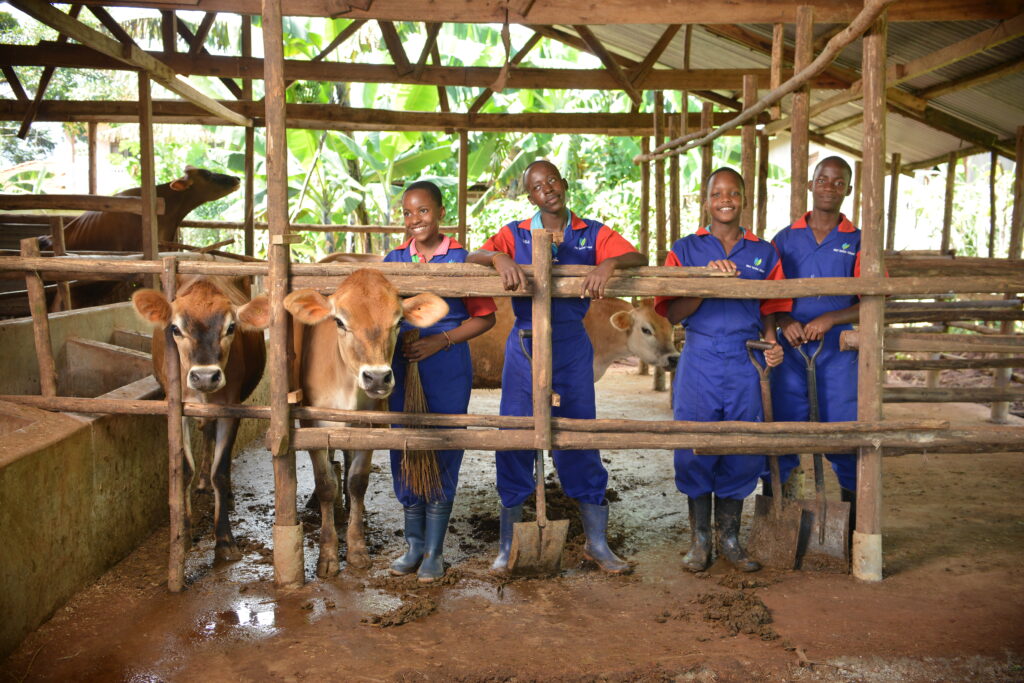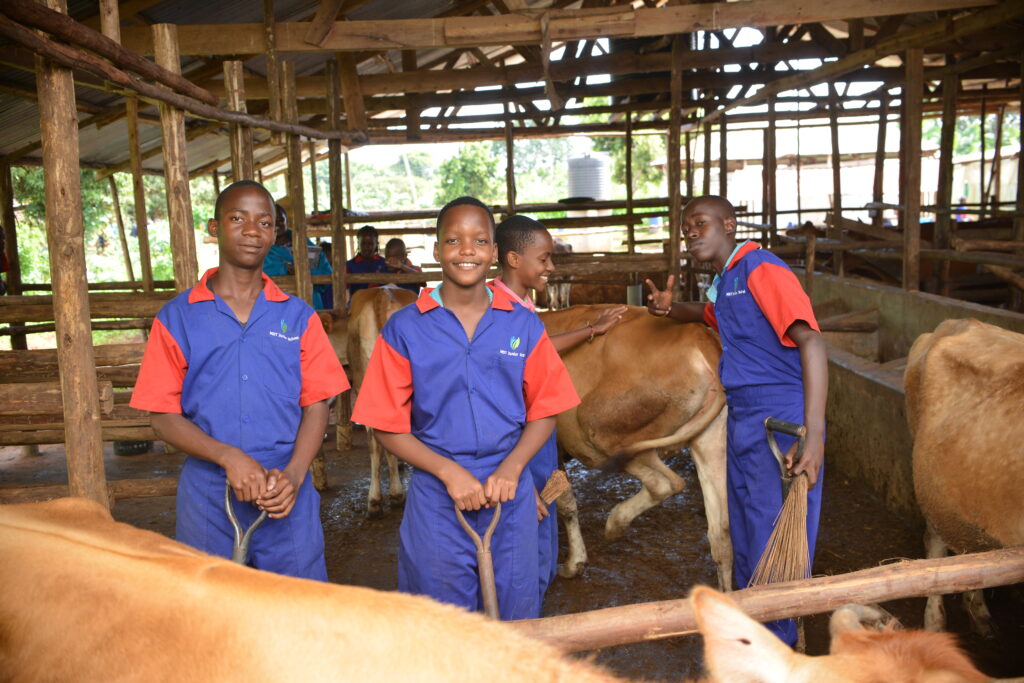Empowering the Future: Cattle-Keeping Program at MST Junior School
Introduction:
In a visionary move towards holistic education and sustainable practices, MST Junior School has embarked on a groundbreaking journey by introducing the Cattle Keeping Program. This program not only enriches the students’ academic experience but also instills values of responsibility, empathy, and environmental stewardship.

Objective:
The primary goal of the Cattle Keeping Program is to provide students with hands-on learning experiences that foster a deeper understanding of agriculture, animal husbandry, and sustainable living. Through this initiative, MST Junior School aims to empower students with practical skills and a sense of connection to the natural world.
Program Components:
Curriculum Integration:
- The Cattle Keeping Program seamlessly integrates into the school curriculum, enriching subjects such as biology, environmental science, and agriculture.
- Students learn about the life cycle of cattle, nutritional requirements, and the ecological impact of sustainable farming practices.
Hands-on Learning:
- Students actively participate in the day-to-day care of the school’s cattle, gaining practical skills in feeding, grooming, and health monitoring.
- Regular workshops and demonstrations by experienced farmers enhance students’ knowledge and skill set.
Environmental Awareness:
- The program emphasizes the importance of sustainable agriculture and responsible land use.
- Students engage in discussions about the environmental impact of conventional farming versus sustainable practices, fostering a sense of responsibility towards the planet.
Life Skills Development:
- Cattle keeping teaches students valuable life skills such as teamwork, time management, and problem-solving.
- Through collaborative efforts, students develop a strong work ethic and a sense of pride in contributing to the well-being of the school community.
Community Involvement:
- The Cattle Keeping Program encourages community involvement by inviting local farmers and experts to share their knowledge with students.
- Field trips to nearby farms provide students with exposure to diverse agricultural practices, creating a well-rounded understanding of the industry.
Benefits:
Holistic Education:
- The program enhances the school’s commitment to providing a holistic education by incorporating real-world experiences into the academic curriculum.
Environmental Consciousness:
- Students develop a heightened awareness of the environmental impact of their choices, fostering a sense of responsibility towards sustainable living.
Skill Development:
- Practical skills acquired through the program prepare students for future endeavors, whether in agriculture or other fields.
Community Engagement:
- The Cattle Keeping Program strengthens the bond between the school and the local community, creating a platform for knowledge exchange and collaboration.

Conclusion:
MST Junior School’s Cattle Keeping Program is a pioneering initiative that goes beyond traditional education. By providing students with hands-on experiences in agriculture and animal husbandry, the school is sowing the seeds for a generation that values sustainability, community, and a deep connection to the natural world. This innovative approach not only enriches the educational experience but also prepares students to be responsible global citizens with a profound understanding of their role in shaping a sustainable future.
